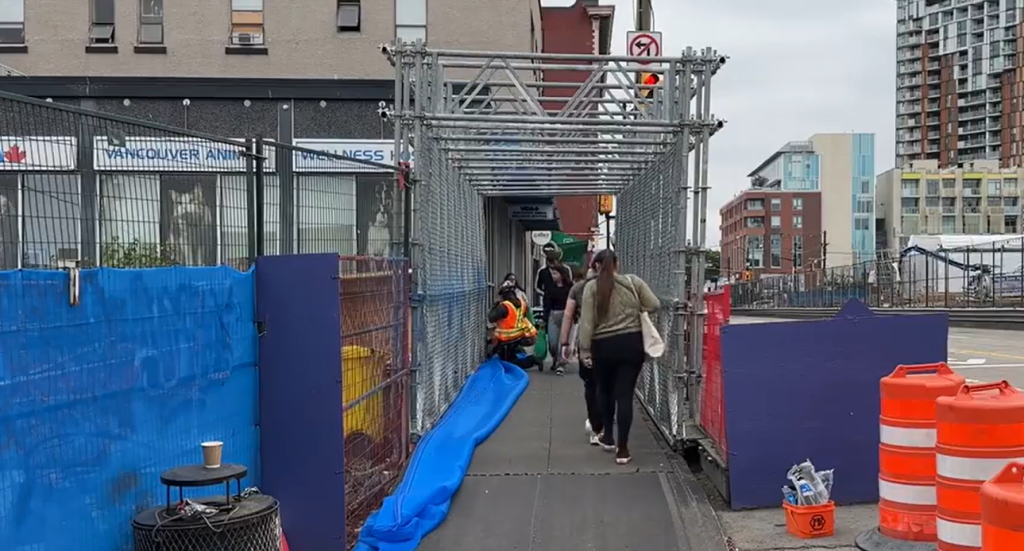
Construction of the new subway line in Vancouver has drawn sharp criticism from local business owners, who are grappling with the ongoing disruptions and closures along Broadway. The subway project, which began in 2020, is now expected to be operational by 2027, significantly later than the anticipated opening date of September 18.
Neil Wyles, executive director of the Mount Pleasant Business Improvement Association, expressed frustration over the situation, stating, “The outlook is desperate. We still have another two years to go.” With the construction delays, various businesses, including restaurants and even a bank, have closed their doors, leaving a noticeable void in the community.
Wyles highlighted the impact of these closures, noting, “We are losing businesses along Broadway. It feels like something every week. Good, viable restaurants are shutting down.” He specifically pointed out the recent closure of Café Artigiano, stating that the loss of a bank is particularly alarming, as it indicates a dire situation for local commerce.
While Wyles does not blame the City of Vancouver for the construction issues, he directed his anger towards the provincial government. “The words escape me as to what I think of the province and their policies,” he said, criticizing their lack of support for affected businesses. The Ministry of Transportation has indicated that it is not committing to compensating businesses impacted by the construction, a stance Wyles finds unacceptable.
“This will be seven years, and these businesses didn’t plan on that, and there’s just no help coming. Zero. Nothing,” he lamented. The financial struggles faced by small business owners often extend into their personal lives, creating a precarious situation. Wyles explained, “When the business goes under, you don’t just get to walk away. Those commitments follow you into your private life for many years.”
Despite some programs offering property tax relief, Wyles noted that the criteria for assistance are stringent, with construction-related challenges not qualifying for support. “There are some programs out there, but it’s really hard to get it, and construction is not one of the criteria,” he said.
As the construction progresses, the situation along Broadway continues to deteriorate. Wyles mentioned that he stopped counting the number of businesses that have closed when the tally reached 80, noting a drastic increase in “for lease” signs and vacant storefronts. He underscored the stark contrast between Broadway and nearby Main Street, which remains vibrant and bustling.
Foot traffic has diminished significantly, compounded by lane closures and construction crews creating visual distractions. Wyles remarked on the repeated responses from provincial officials stating, “There’s nothing we can do,” expressing frustration with the lack of action from local representatives, including high-profile ministers such as Brenda Bailey and Christine Boyle.
While the provincial government has claimed that the subway line will eventually lead to economic benefits for businesses along Broadway, Wyles remains skeptical. “As we look forward to fall of 2027, when the line is complete, will it still be a wasteland? And then what was it all for?” he questioned.
The project is currently over budget by at least $127 million. The 5.7-kilometre extension of the Millennium Line aims to alleviate road traffic and provide quicker access to the University of British Columbia. It will feature six underground stations, with approximately 700 metres elevated and the remaining five kilometres tunneled underground.
With ongoing construction and limited support for affected businesses, the future of Broadway remains uncertain as the community awaits the completion of the subway line.







